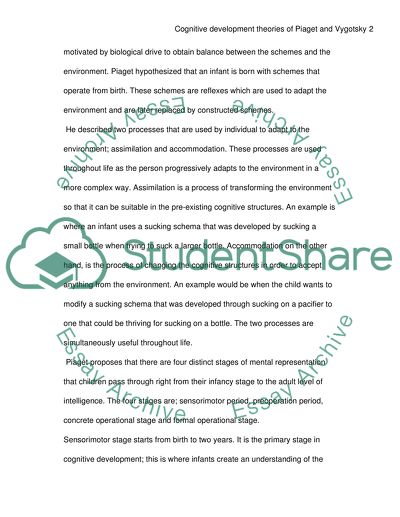Cite this document
(“Critically evaluate the cognitive development theories of Piaget and Essay”, n.d.)
Critically evaluate the cognitive development theories of Piaget and Essay. Retrieved from https://studentshare.org/miscellaneous/1522400-critically-evaluate-the-cognitive-development-theories-of-piaget-and-vygotsky-and-discuss-their-relevance-to-social-work-practice
Critically evaluate the cognitive development theories of Piaget and Essay. Retrieved from https://studentshare.org/miscellaneous/1522400-critically-evaluate-the-cognitive-development-theories-of-piaget-and-vygotsky-and-discuss-their-relevance-to-social-work-practice
(Critically Evaluate the Cognitive Development Theories of Piaget and Essay)
Critically Evaluate the Cognitive Development Theories of Piaget and Essay. https://studentshare.org/miscellaneous/1522400-critically-evaluate-the-cognitive-development-theories-of-piaget-and-vygotsky-and-discuss-their-relevance-to-social-work-practice.
Critically Evaluate the Cognitive Development Theories of Piaget and Essay. https://studentshare.org/miscellaneous/1522400-critically-evaluate-the-cognitive-development-theories-of-piaget-and-vygotsky-and-discuss-their-relevance-to-social-work-practice.
“Critically Evaluate the Cognitive Development Theories of Piaget and Essay”, n.d. https://studentshare.org/miscellaneous/1522400-critically-evaluate-the-cognitive-development-theories-of-piaget-and-vygotsky-and-discuss-their-relevance-to-social-work-practice.


